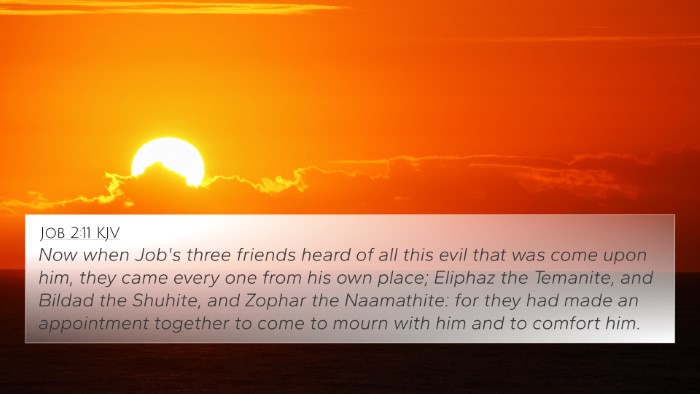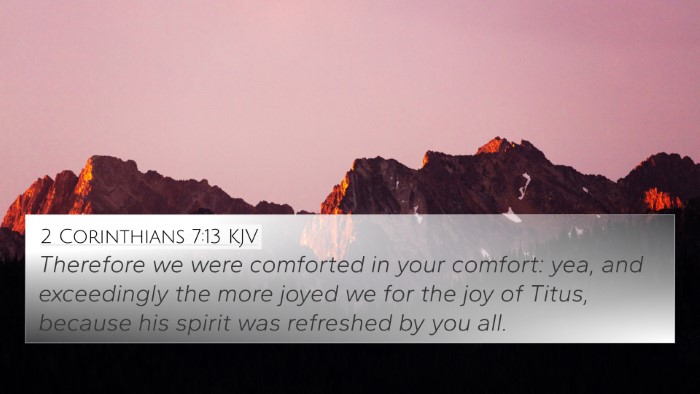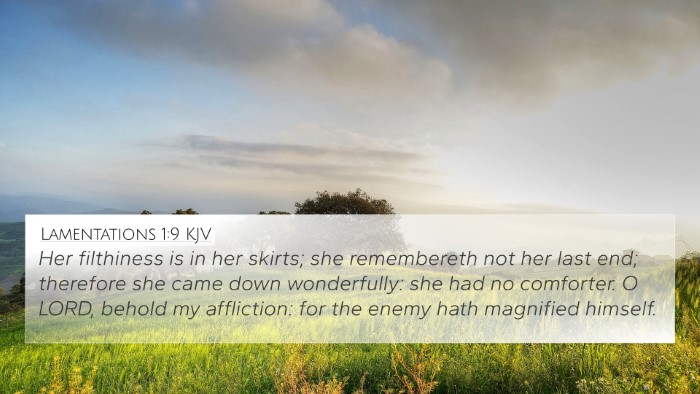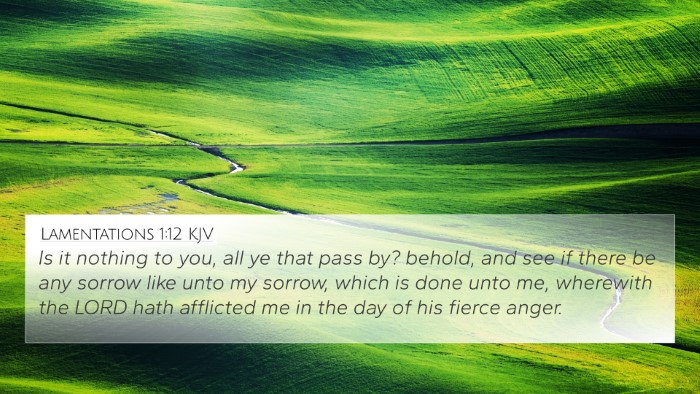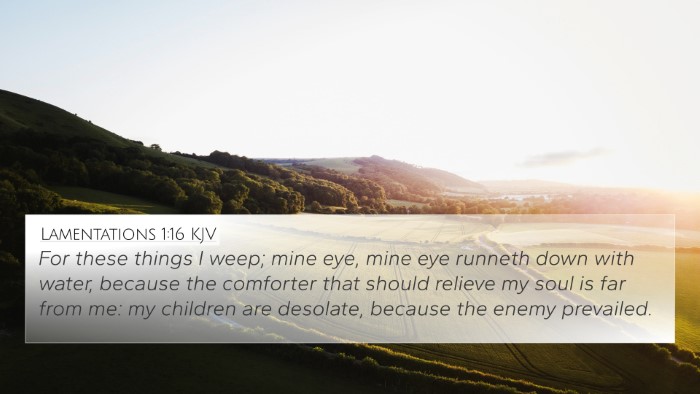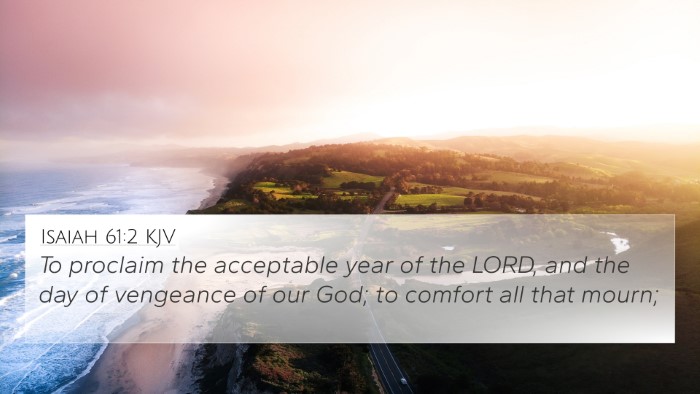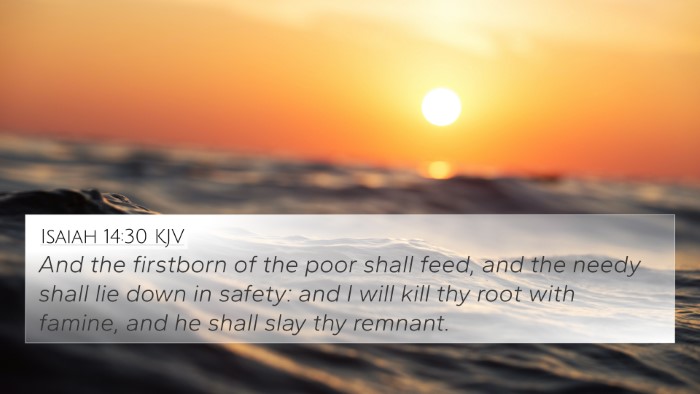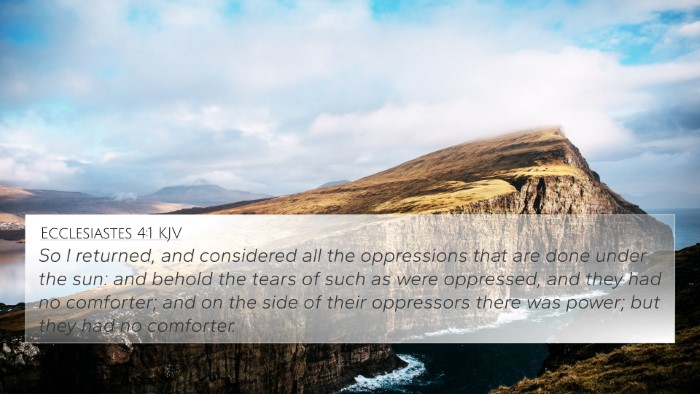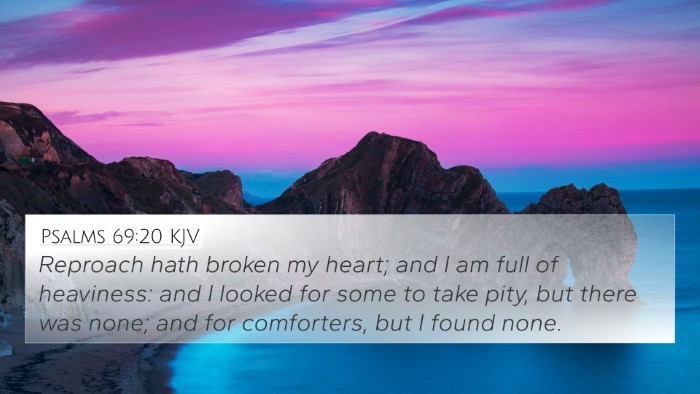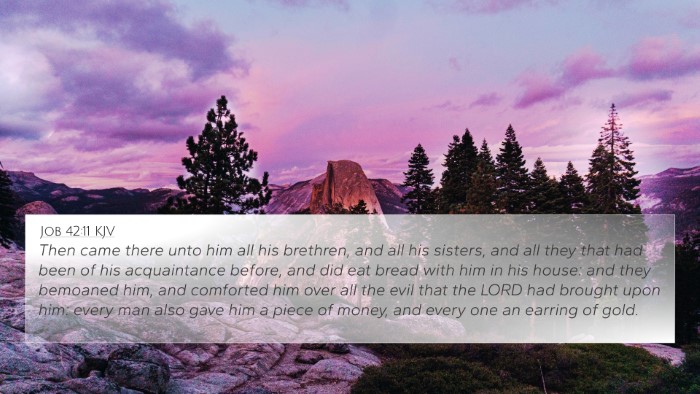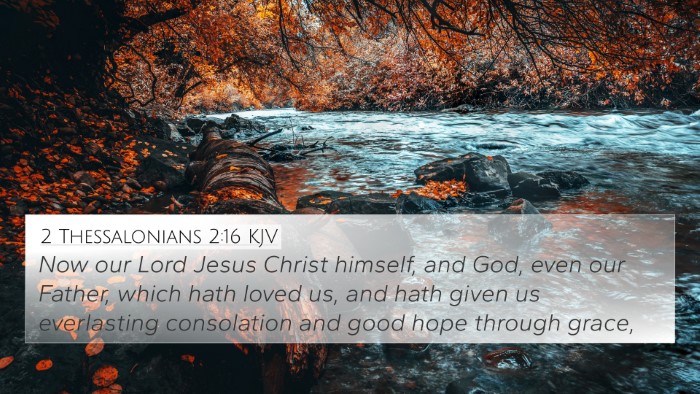Understanding Isaiah 51:19
Isaiah 51:19 states: "These two things have come to you; who will be sorry for you?—desolation and destruction, famine and sword—by whom will I comfort you?" This verse reflects a powerful message concerning God's judgment and the consequences of turning away from Him. The sentiments expressed in this verse address the dire state of Zion and the coming calamity resulting from the people's rebellion.
Verse Meaning and Interpretation
This verse represents a lament over the fate of Jerusalem, drawing attention to the dual calamities, desolation and destruction, that have befallen the city due to the people's sin. The prophet questions who will offer comfort in times of such overwhelming adversity, emphasizing the despair that accompanies divine judgment.
Commentary Insights
Insights from public domain commentaries provide a deeper understanding of this verse:
- Matthew Henry's Commentary: Henry highlights the consequences of Israel's unfaithfulness, indicating that the destruction is a direct result of their forsaking God. He notes that this verse serves as a warning that the absence of comfort is due to their alienation from God's grace.
- Albert Barnes' Notes: Barnes underscores the hopelessness of the situation, pointing out that the calamities mentioned are symbolic of the broader spiritual destitution. He suggests that the rhetorical questions emphasize the depth of despair and the lack of true comfort for the afflicted.
- Adam Clarke's Commentary: Clarke elaborates on the themes of comfort and discouragement in this passage. He indicates that while physical destruction is severe, the emotional and spiritual ramifications are even more profound, highlighting God's desire for repentance and restoration amongst His people.
Thematic Connections and Cross-References
Isaiah 51:19 resonates with various other scriptures, providing a tapestry of connections across the Bible. Understanding its place within the broader narrative is vital for interpretation. Here are some key Bible verse cross-references:
- Jeremiah 30:15: "Why do you cry out about your wound? Your pain is incurable. Because of your great guilt and many sins I have done these things to you." This verse echoes the theme of suffering resulting from sin.
- Lamentations 1:9: "Her filthiness was in her skirts; she did not consider her end; therefore she came down astonishingly; she had no comforter." This aligns with the idea of desolation and the absence of comfort.
- Isaiah 40:1: "Comfort, comfort my people, says your God." A direct contrast emphasizing the longing for divine consolation amidst judgment.
- Ezra 9:6: "Oh my God, I am too ashamed and disgraced to lift up my face to you, my God, because our sins are higher than our heads and our guilt has reached to the heavens." This expresses deep remorse and guilt, similar to the lament in Isaiah 51:19.
- Ezekiel 33:11: "Say to them, 'As surely as I live, declares the Sovereign Lord, I take no pleasure in the death of the wicked, but rather that they turn from their ways and live.'" Here, the call to repentance and the desire for life contrasts starkly with the desolation mentioned in Isaiah.
- Revelation 21:4: "He will wipe every tear from their eyes. There will be no more death or mourning or crying or pain, for the old order of things has passed away." This verse brings hope and restoration, standing in stark contrast to the despair of Isaiah 51:19.
- Psalm 119:92: "If your law had not been my delight, I would have perished in my affliction." This emphasizes the importance of God’s word as a source of comfort, complementing the despair present in Isaiah.
Importance of Cross-Referencing in Biblical Study
Studying connections between Bible verses is integral to grasping the full depth of scriptural meaning. Here are some reasons to utilize tools for Bible cross-referencing:
- Enhanced Understanding: Cross-referencing helps deepen comprehension of themes and messages.
- Thematic Exploration: By linking Bible scriptures, one can explore recurrent themes and motifs across the Testaments.
- Contextual Clarity: Understanding how various verses relate provides insight into the broader narrative context.
- Auxiliary Teachings: Parallels between verses can reveal supplementary teachings and doctrines.
Practical Applications for Study
For those seeking to delve deeper into the Bible and improve their understanding of scripture, employing a Bible cross-reference guide can be immensely beneficial. Here are some practical tips:
- Use a Bible Concordance: Utilize a concordance to locate relevant verses and themes seamlessly.
- Engage in Comparative Bible Verse Analysis: Study similar verses in different contexts to discern nuanced meanings.
- Practice Inter-Biblical Dialogue: Foster discussions and reflections on connections between Old and New Testament writings.
- Explore Cross-Referencing Bible Study Methods: Implement methods that allow for thematic exploration and historical context.
Conclusion
In summary, Isaiah 51:19 serves as a poignant reminder of the consequences of turning away from God while simultaneously expressing the depth of grief and longing for comfort amidst suffering. Understanding this verse through the lens of public domain commentaries and scriptural cross-referencing opens the door to a richer biblical insight.
By engaging with the text and its connections to other scriptures, readers can uncover the profound truths embedded within the Word of God, fostering both personal and communal reflective study of biblical themes.





